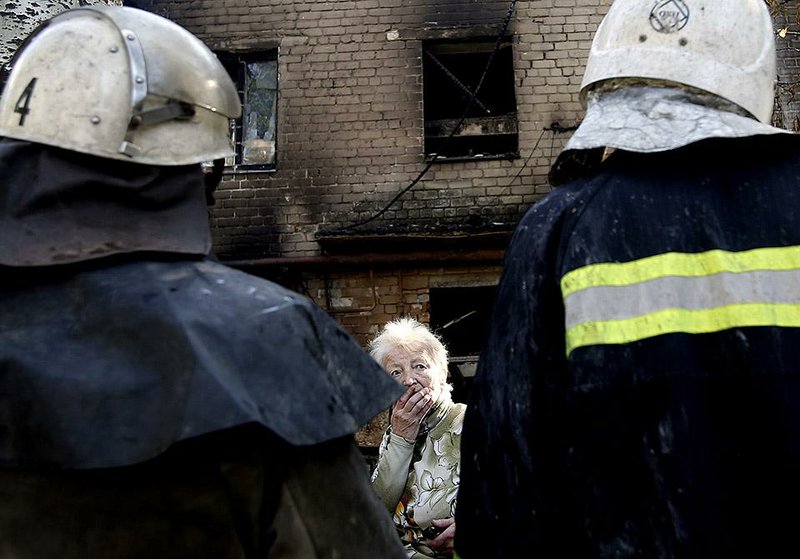DONETSK, Ukraine -- Shelling in rebel-held parts of east Ukraine killed at least 12 civilians Wednesday, as a top leader of pro-Russia rebels rejected Ukrainian legislation meant to end the unrest by granting self-rule to large swaths of the east.
The City Council of Donetsk, the largest rebel stronghold, said shelling killed two people in the city Wednesday and wounded three others. In a separate statement published online, the news center for Kiev's military campaign in the east said that at least 10 civilians in the town of Nyzhnya Krynka, 12 miles east of Donetsk, had been killed by shelling.
Since a cease-fire imposed Sept. 5, the fighting in Donetsk has been primarily limited to the north of the city, where many residential neighborhoods have been caught in the crossfire of battles centered on the government-controlled airport.
The cease-fire has been much violated from the start and civilian casualties have continued to rise, adding to the estimated 3,000 people killed since fighting started in April.
On Tuesday, the Ukrainian parliament took a step to resolve the crisis by passing laws that would grant greater autonomy to rebel-held parts of the east, as well as amnesty for many of the separatists, a concession to both Moscow and the rebels.
But rebel leader Andrei Purgin said Wednesday that the separatist leadership was not willing to allow Donetsk and Luhansk to remain part of Ukraine.
"We perceive this as a document in which we can find certain points to start a dialogue," Purgin said. "But there is a red line we cannot cross: We do not accept any political unions ... with Ukraine. No federative, no unitary structure."
The laws passed by Ukrainian parliament call for three years of self-rule in parts of eastern Ukraine and for local elections in December. They grant concessions that were not previously offered by the Ukrainian side, such as local oversight of court and prosecutor appointments and local control of police.
But Purgin insisted that the rebel leadership would settle only on full independence from Ukraine.
"We are unable to join the Russian Federation directly, so we will build our own country," he said.
Purgin's comments, echoed by other leaders Wednesday, could undermine peace talks that are underway in the Belarusian capital of Minsk between Ukraine, Russia, and the Russia-backed rebels.
The comments are also in striking contrast to the Russian foreign ministry's positive reaction to the legislation, which it called a "step in the right direction."
The legislation "creates the foundation for launching a substantive constitutional process in Ukraine, including the start of a dialogue intended to help national reconciliation and accord in the country," the ministry said in a statement Wednesday.
Ukraine and the West have repeatedly accused Russia of supplying the separatists with personnel, arms and expertise. Moscow denies those claims.
Information for this article was contributed by Laura Mills and Vladimir Isachenkov of The Associated Press.
A Section on 09/18/2014

